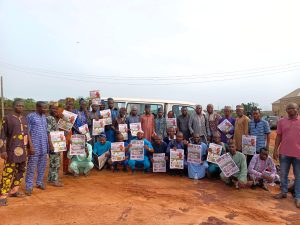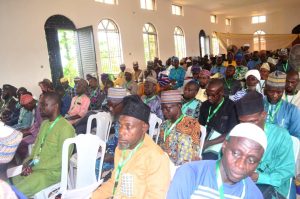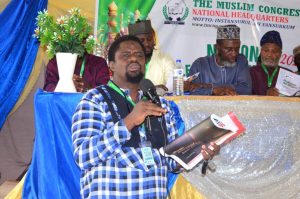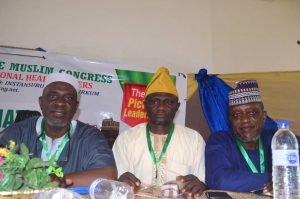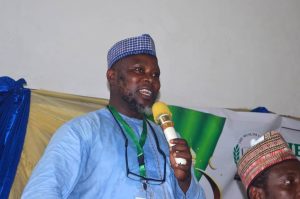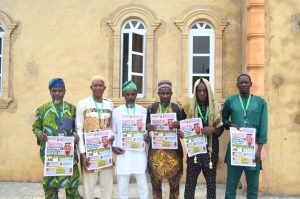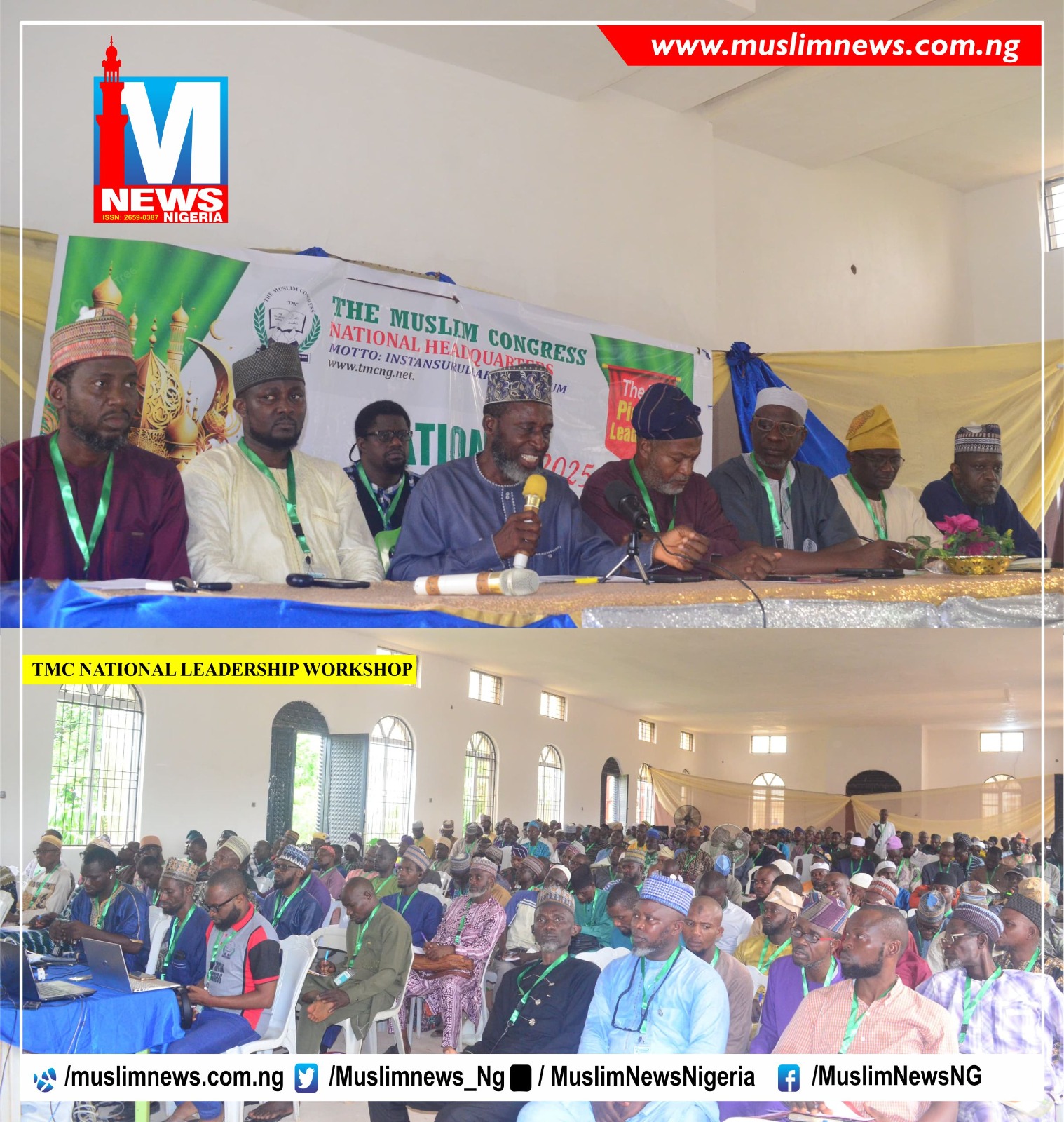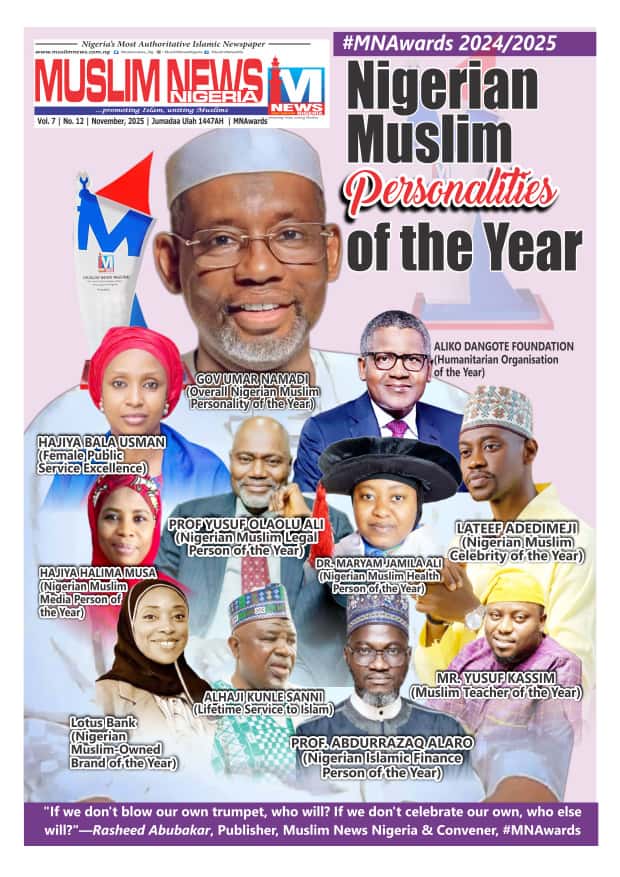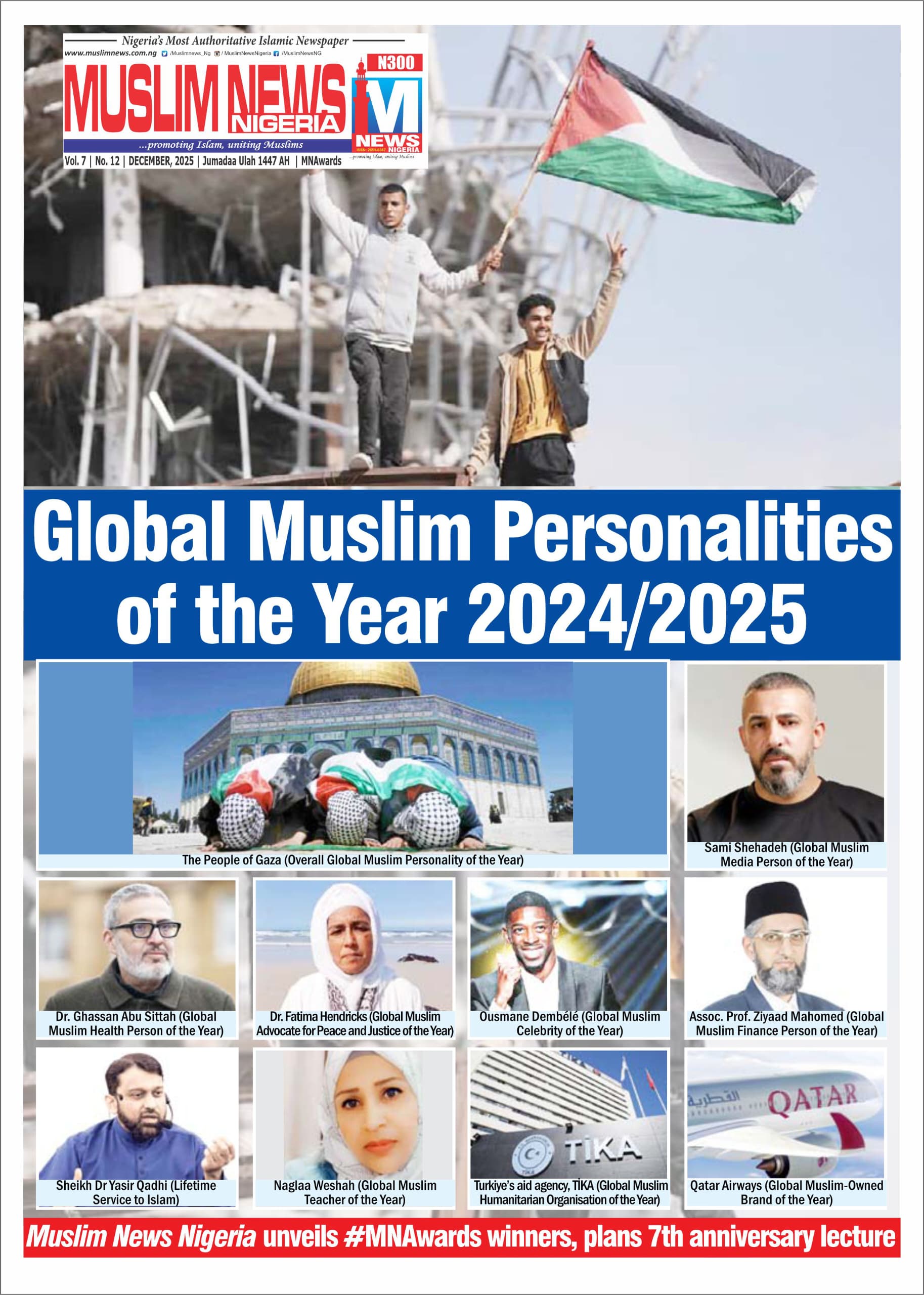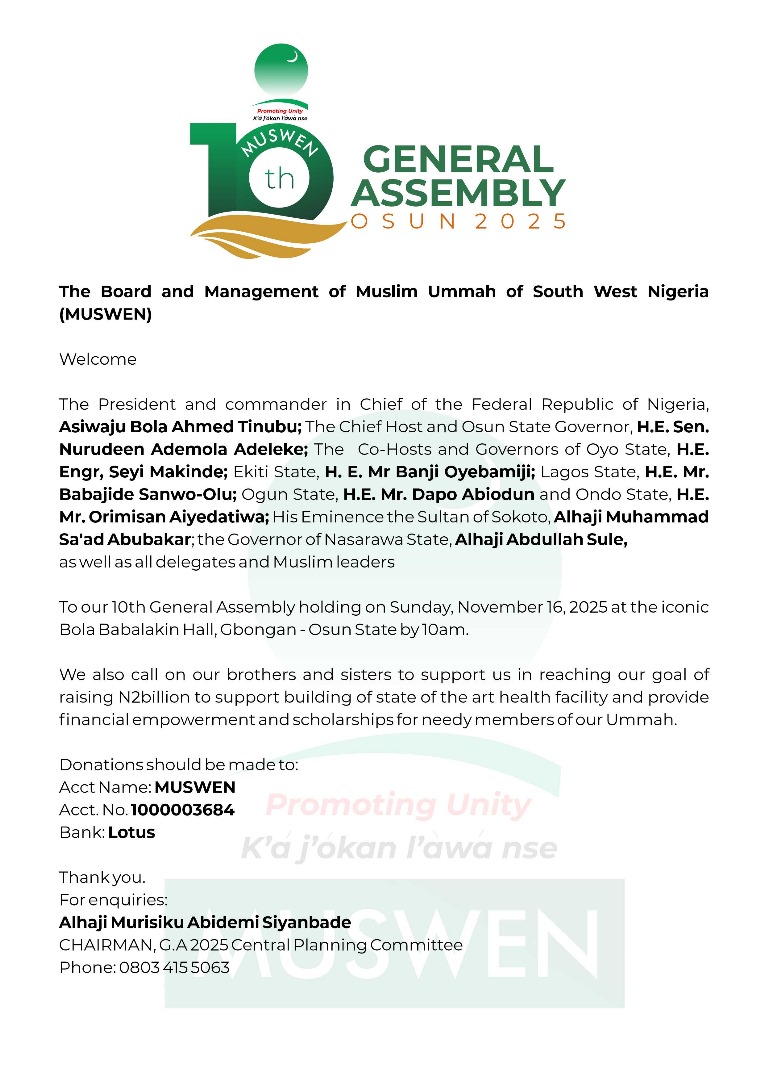* No organisation can progress with negative-minded people – Dr. Adeniyi
* Expert calls for ethical use of AI tools
The Chief Executive Officer (CEO) of Vanguards Academy, Dr. Zafaran Adeniyi, has emphasized that no organization can thrive with negative-minded individuals.
Dr. Adeniyi stressed that negativism is a reflection of weak faith (iman), urging that individuals exhibiting this behavior should be promptly identified and supported within any organization.
He made the remarks while facilitating a session at the 2025 National Leadership Workshop of The Muslim Congress (TMC), held on Saturday, April 26, at the Federal Government Housing Estate, Batoro, Sagamu, Ogun State.
The workshop, themed ‘The Big Picture Leadership’, was a two-day hybrid event designed to enhance the leadership capacity of TMC leaders at branch, state, and national levels.
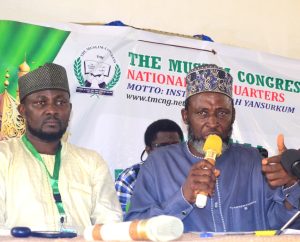
During his session, Dr. Adeniyi explained that negativism manifests when individuals believe that tasks or goals are unachievable. He described this attitude as being counterproductive to both individual and societal progress, particularly in organizations working for Islam.
“For an organisation dedicated to Islam, having negative-minded individuals can be detrimental,” Dr. Adeniyi said. “Their projects will struggle, meetings will be unproductive, and their activism will not align with societal needs.”
Dr. Adeniyi, an accomplished author, noted that negativism has become prevalent in many Muslim organisations.
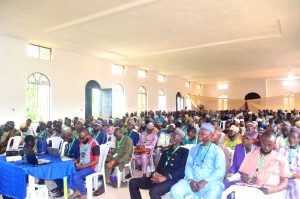
“When people dismiss the possibility of achieving something, or when they agree on a plan in meetings but later act against it, that’s negativism. Even failing to follow through is a form of negativism,” he said.
He called for a revitalization of iman as the first step in combating negativism. “When iman is weak, it affects everything – from thinking to financial decisions,” he added. “When iman is strong, it drives effective leadership and actions.”
Dr. Adeniyi also emphasized the importance of clear planning and accountability within organizations. “We need to review tasks and ensure they are completed. If individuals exhibit negative tendencies, they must be identified early, as they can influence others negatively.”
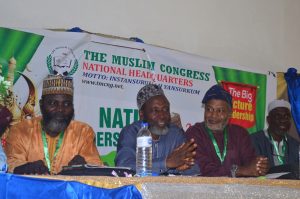
While acknowledging the enthusiasm of workshop participants, he recommended a feedback session to assess whether attendees had internalized the lessons shared.
* Expert calls for ethical use of AI tools for organizational growth
On the first day of the workshop, Ustadh AbdulAzeez Adelopo, CEO of Ictify Solutions, Ibadan, addressed the topic ‘AI for Islamic Mission: Friend or Foe?’ He explained that AI is a neutral technology, and its impact depends on how it is used.
“Just like a knife, AI can either serve or harm, depending on the user,” he remarked. “AI is a tool—it can aid the Islamic mission if its use is guided by knowledge, ethics, and clear purpose.”
Ustadh Adelopo highlighted several AI tools, including ChatGPT, Google Translate, facial recognition, and recommendation engines, and discussed their potential in global da’wah efforts, such as translation, online Qur’an learning, content creation for Juma’h khutbahs, and community management.
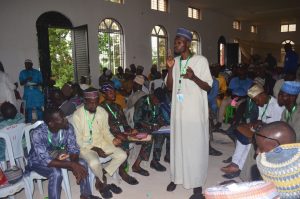
Early identification will help solve organisational challenges
In his own presentation titled ‘Managing the Impact of Environmental Factors Towards Successful Endeavours’, Engr. Tajudeen Oladoja, a chartered project manager, stressed the importance of identifying issues early enough for redress in an organisation.
Oladoja, who is the CEO of PM Ideals, said when issues are addressed earlier, they will not develop to problems which can cause setbacks for the organisation.
“Problem often implies a more serious or challenging difficulty requiring a solution, while issue can be a broader topic for discussion or concern. Issue might be used to frame a problem in a less confrontational way.
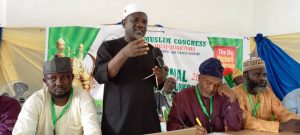
“A well-designed issue management process can help project managers identify potential issues before they become major problems, prioritize issues based on their impact on the project, and track the progress of issues,” he said.
Engr. Oladoja noted that a proper issue management process also has the potential to boost stakeholders confidence in a project and also increase success rate.
• Why we organise leadership workshop every year, by Amir
In his welcome address, TMC’s Amir (President), Alhaji Abdulwasi Bangbala, explained that the workshop serves to sharpen leadership skills and deepen the understanding of contemporary challenges. He noted that leadership is dynamic, evolving to meet the changing needs of society.
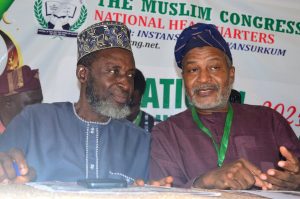
“We gather year after year because leadership is not static—it evolves,” Alhaji Bangbala stated. “The challenges we face as an organization and as an Ummah require that our strategies, skills, and vision evolve as well.”
He quoted the Prophet (SAW), saying, “The strong believer is better and more beloved to Allah than the weak believer, though there is good in both.” He emphasized that strength in leadership is not just physical but intellectual, emotional, and spiritual.
Alhaji Bangbala expressed gratitude to the facilitators and encouraged participants to engage fully in the workshop. “I urge you to actively engage, ask questions, and learn from the wealth of experience the facilitators bring,” he said.
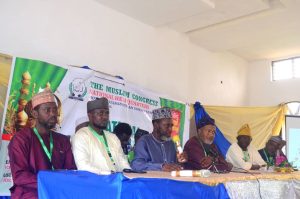
The Amir also thanked the organization’s executives for their tireless efforts, acknowledging their role in TMC’s impact on society. “Your dedication fuels TMC’s meaningful contributions,” he added.
He reminded the attendees that leadership in Islam is an Amānah (Trust) and urged them to apply what they learned to become better servants of Allah. “Let us leave here not just as better leaders, but as better servants of Allah, ready to lead with integrity, wisdom, and courage.”
* We need to develop open-mindedness – Chairman planning Committee
Mal. Lawal Salman, Chairman of the Planning Committee, thanked the facilitators for their contributions and highlighted the importance of developing open-mindedness in leadership. He pointed out that Nigeria’s current challenges demand broader perspectives and greater environmental awareness from Muslims.
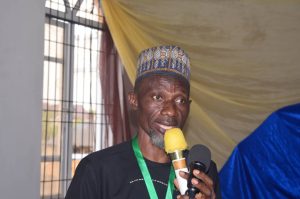
“To achieve our goals, our leadership must embrace open-mindedness and broad-mindedness,” Malam Salman, who is also the Executive Director of the Global Center for Leadership and Human Development, said. “This is why the theme of this year’s workshop—‘The Big Picture Leadership’—is so important.”
Other faces at the workshop
